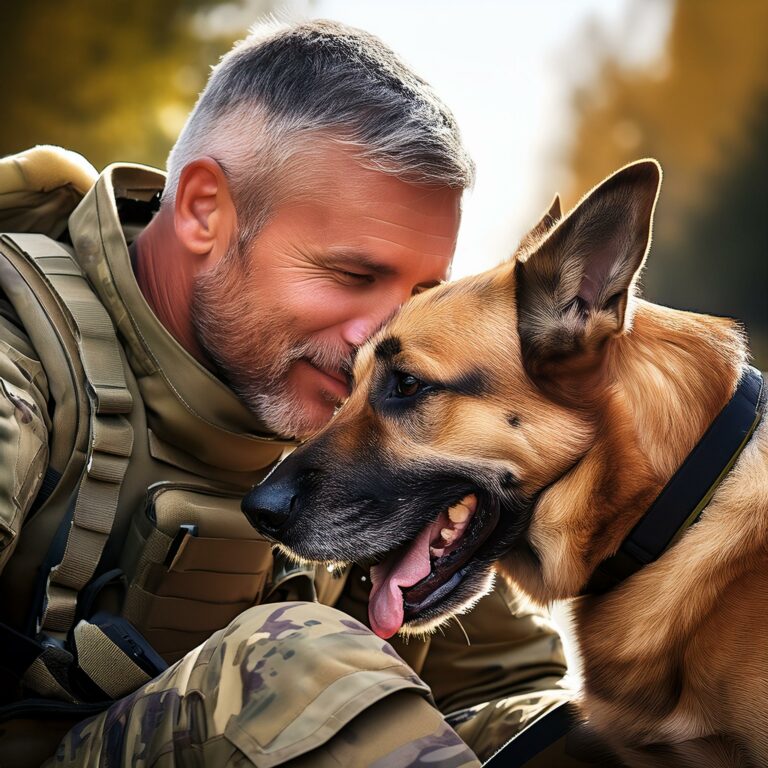Post-traumatic stress disorder (PTSD) in soldiers: understanding to better support
Post-traumatic stress disorder (PTSD) is a painful reality for many soldiers and veterans. This psychological disorder, which can affect anyone who has experienced an extreme or traumatic situation, is particularly prevalent among military personnel due to the nature of their work. Understanding PTSD and its consequences is essential to providing appropriate support to these men and women who often face another battle upon returning to civilian life.
What is PTSD?
PTSD is a psychiatric disorder that occurs after exposure to a traumatic event, such as combat, an attack, an accident, or any situation that severely threatens physical or psychological integrity. This disorder affects the brain, altering how it processes memories and regulates emotions.
The symptoms of PTSD can include:
- Re-experiencing trauma: flashbacks, nightmares, intrusive memories.
- Hypervigilance: constant state of alertness, exaggerated startle responses, difficulty relaxing.
- Avoidance: avoiding places, people, or activities associated with the trauma.
- Cognitive and mood alterations: feelings of guilt, shame, anger, or depression.
A historical perspective on PTSD
Interest in PTSD has its roots in major armed conflicts. During World War I, the phenomenon known as “war neurosis” or “shell shock” drew the attention of military doctors. Soldiers returned from the front with unexplained emotional and behavioral disorders. These symptoms were often perceived as signs of weakness, leading to the stigmatization of affected soldiers. In response, the military began implementing measures to support soldiers in distress, including specialized medical units in the field, psychological debriefing programs after missions, and rehabilitation centers for veterans. These efforts aimed to reduce the impact of trauma, improve operational capabilities, and facilitate reintegration into civilian life.
However, these observations also highlighted the importance of studying and understanding such disorders, as they not only affected soldiers’ performance in combat but also their ability to reintegrate into society. The societal and economic impacts of psychological trauma became evident, emphasizing the need for tailored treatments and care strategies.
During World War II, significant progress was made in understanding psychological trauma. However, it was only after the Vietnam War that PTSD was officially recognized as a psychiatric disorder in 1980, with its inclusion in the Diagnostic and Statistical Manual of Mental Disorders (DSM-III). This recognition marked a turning point in the care provided to veterans.
Since then, recent conflicts, such as those in Iraq and Afghanistan, have highlighted the importance of proactively addressing psychological trauma. Advances in knowledge have improved understanding of PTSD mechanisms and led to more tailored interventions.
Why are soldiers so vulnerable to PTSD?
Soldiers face extremely stressful and often repeated situations during their service. Combat, explosions, the loss of comrades, or witnessing traumatic scenes leave deep scars. Additionally, military culture often emphasizes mental and physical strength, which can discourage soldiers from seeking help out of fear of being perceived as weak.
Consequences of PTSD
PTSD is not limited to painful memories; it can affect all aspects of a person’s life. Common consequences include:
- Strained relationships: difficulties communicating with family and friends.
- Professional problems: inability to maintain stable employment.
- Physical health issues: sleep disorders, chronic pain.
- Increased risks: substance abuse, alcoholism, self-destructive behaviors, even suicide.
How can civilians help?
- Education: understanding PTSD is the first step. It fosters empathy and helps avoid judgment.
- Emotional support: providing active listening without minimizing the suffering.
- Encouraging professional help: motivating soldiers to consult a mental health professional.
- Respecting boundaries: avoiding intrusive questions or pressuring them to talk if they are not ready.
Towards better recognition of PTSD
It is crucial for institutions and society to recognize PTSD as a legitimate consequence of military service. Today, programs are being implemented to assist soldiers suffering from PTSD. These include better training for healthcare professionals, tailored psychological support initiatives, peer support groups for veterans, and effective rehabilitation programs.
Nonprofit organizations also play a significant role. In France, the association LA CAPE provides specially trained assistance dogs to help veterans with PTSD. Similar initiatives exist in other countries, such as Veterans With Dogs in the UK and K9s For Warriors and Paws For Purple Hearts in the United States, which combine canine therapy with psychological support.
Assistance dogs play a crucial role in managing PTSD. They provide constant emotional support, reduce anxiety through their calming presence, and help regulate their owners’ emotions. Additionally, they can be trained to detect impending anxiety attacks and act to distract or calm their owner, enabling better symptom management.
Soldiers put their lives on the line to protect others. In return, it is our duty to provide them with a safe and understanding environment when they return home, so they can regain a peaceful and meaningful life.

